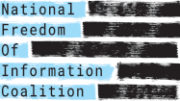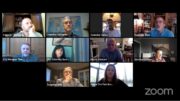By Jeffrey A. Roberts
CFOIC Executive Director
A 2021 Colorado Court of Appeals opinion on what lawyers can tell the press about pending class-action lawsuits will chill “legitimate speech that allows the media to keep the public informed on matters of significant public concern,” the Colorado Freedom of Information Coalition and news associations argue in a brief filed recently with the Colorado Supreme Court.
If allowed to stand, the ruling will diminish “vital news coverage of some of the most important court cases — those involving widespread injuries,” contend CFOIC, the Colorado Press Association, the Colorado Broadcasters Association and the Gannett newspaper company. The American Civil Liberties Union of Colorado also signed onto the brief.

The appellate decision under review by the Supreme Court concerns a case brought against Killmer, Lane & Newman, a prominent Denver civil rights law firm. The Court of Appeals determined the firm can be held liable for certain comments attorney Mari Newman made at a news conference about a federal class-action lawsuit filed on behalf of technicians working for a nail salon. The salon sued Newman for defamation after she alleged the workers had been forced to clean the business “for no pay whatsoever.”
Although some of Newman’s statements were opinions protected by the First Amendment, the Court of Appeals judges ruled others were not protected by the litigation privilege, which shields a lawyer who publishes allegedly “defamatory matter” about another person or party in relation to a judicial proceeding. The ruling carved out an exception for statements made in a class-action suit where the class (nail salon technicians, in this instance) is “ascertainable” or easy to identify through discovery.
But in addressing only the interests of lawyers in speaking publicly about their cases, the Court of Appeals overlooked the First Amendment rights of the news media and the public “to receive accurate, truthful, and newsworthy information about matters pending in our courts,” CFOIC’s friend-of-the-court brief says.
“The First Amendment protects not only the interests of speakers, such as the lawyers here, but also the media’s and the public’s interests in receiving newsworthy information about matters of public concern,” wrote Boulder attorney Matthew Simonsen for the organizations. “Further, the media plays a special, constitutionally recognized role in keeping the public informed about court proceedings and other government functions, and the importance of that role is paramount in cases alleging widespread harms, such as class actions.”
The kind of speech at issue in the Killmer Lane case — attorneys’ statements to the press about pending class actions — “is undoubtedly of concern to the public” regardless of whether the class is easy to identify, the brief adds.
“The public, including both service industry laborers and consumers of those services, have a right to know when cases are filed in our courts addressing possible worker exploitation in their communities that is generally hidden from public view.”
Class-action lawsuits “are inherently newsworthy, as the wrongs they seek to redress must be widespread,” the brief says, also noting that the news media relies on attorneys to publicize their cases, particularly as newsroom resources have dwindled. “Few, if any, media outlets have the staffing needed to constantly scour and evaluate court filings for potentially newsworthy cases, especially not in state and local courts.”
The Colorado Defense Lawyers Association and the Colorado Trial Lawyers Association also filed briefs asking the Colorado Supreme Court to overturn the Court of Appeals ruling.
Follow the Colorado Freedom of Information Coalition on Twitter @CoFOIC. Like CFOIC’s Facebook page. Do you appreciate the information and resources provided by CFOIC? Please consider making a tax-deductible donation.




